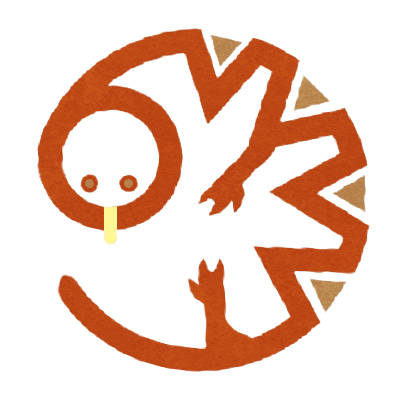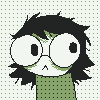Yuzqtin louchlec, ic yuzqtin tnoutzyezil.
(We speak, and so we breathe.)— A common saying
Qetlec, meaning literally "The world's language" is spoken throughout the known world, coming the closest as any man-made languages to being universally understood.
Origins
Qetlec originates within
Rektouzk, as an amalgamation of various languages spoken by the three
Coulqepluex tribes, and a now forgotten group referred to as the
Coulil or
before Coulqepluex. Proximity and assimilation over time developed these languages into a singular, known as Qetlec.
As Rektouzk's power grew, and other nations were conquered, the subjugated peoples had to adopt their language. Rektouzk's trade routes grew out into the world like great vines, carrying with them the promise of riches to those who could learn their language and communicate more clearly with their travelling merchants. Qetlec is especially easy to learn for those on the same continent of Rqet, given that many of their own languages sprouted from the Coulil as well. As a result, Rektouzk's direct neighbors such as
Zilopnou and
Chlotoun have long since adopted Qetlec as their primary language.
Qetlec has not only been adopted within Rqet, however. In fact— the language seems almost preternaturally easy for others to pick up, no matter how much their native tongues may contrast it. As if sheer luck allowed foreign teachers to communicate it effectively within each new culture— without knowing much of anything about them to begin with.
Various cultures throughout the known world have adopted Qetlec as their primary language, and a grand majority today at least practice it as a secondary tongue. While this initially helped Rektouzk's trade empire grow— it has also allowed other nations to communicate with one another more clearly, increasing trade, ending wars, and bringing cultures together.
Speaking Qetlec
Possessives are placed after possessors, like in “Qetlec” which is made of "Qet" (meaning "the world") and "lec" (meaning "language") The word for "the world" comes before the word for "language"— as Qetlec is the
world's language. Otherwise, words are formed backwards— the last root comes before the first.
Ex. “Tichrolzet” meaning “Captain,” or literally “Zet; water” “Rol; vehicle” and “Tich; leader.”
The possessive rule applies to sentences as well, so if you wanted to say "This plate was given to me by Cihe." You would instead say "Cihe gave me this plate." Of note here is that the Qetlec word for "i" is the same as "me"— Yuzq. If you wanted to say "I made soup." You would say "Yuzq noulikix chet."
The order of words dictates what is the possessor and what is possessed, so if one were to instead say "Chet noulikix yuzq." they would be saying "Soup made me." Tense is implied by context, so in the previous example, you could interpret the speaker as saying "I make soup." if they were asked about what they do for a living, but if asked what they ate yesterday it would be "I made soup." If they were asked what they would do for their family visiting next week, this would still be "I make soup." but as the context implies the future tense, the "I" is interpreted as "I will." If necessary one can always clarify by stating when they are referring to, with words and phrases such as "in the past," "once," "one day," "later," "now," and "in this moment."
This contextual implication can create confusion for those unaccustomed to the subject, for example, the motto of
Chlotoun is "Qepluezet noulikix." or "Made by blood." For those who know nothing about the nation, this could be instead interpreted as "We make blood." However, Chlotoun does not have a military force of their own— they do not wage war or fight with others. This motto is, instead of war, a reference to their religious beliefs. It is important to keep in mind that context is extremely important when speaking Qetlec, in order to avoid confusion.
Demonyms are formed by adding "eu" to the end of the location of origin. If the location's name ends in a vowel besides i, "ex" is added instead— unless it ends in an "e" in which case, only the "x" is added. Demonyms also act as plurals.
Ex. Someone from Rektouzk would be "Rektouzkeu," and someone from Kleu would "Kleuex."
Plurals are created by adding "tin" at the end of a word.
Ex. "Chleck" or "city" becomes "Chlecktin" or "cities."
Names
This differs wildly from culture to culture, and applies primarily to those in the continent of Rqet. Names are given to children by their parents, with their married name given as a last name— dependent on the gender of the child. Once married, couples will combine their names, their original coming fist, followed by their spouse's.
Ex. Ytre and Klapnou, once married, become Ytreklapnou and Klapnouytre. Their child is then named Zech Klapnouytre.
These last names are not carried down the family line, and are only passed to their direct children who then pass their own names to their children.








I love the thought you put into this! How do they denote the number zero?
Necromancy is a Wholesome Science.
Thanks! Either with a dot or nothing at all. Or they don't have that concept yet, even.